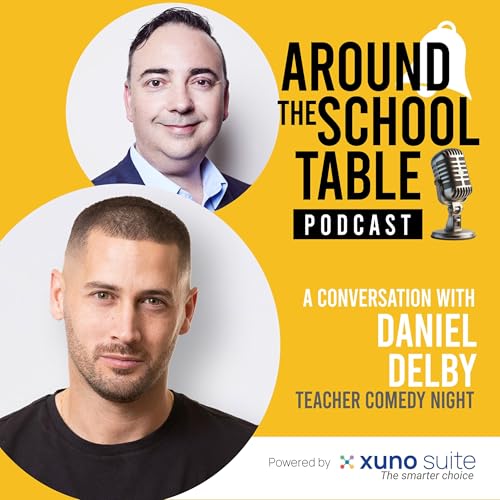In this episode of Around the School Table (xuno.com.au/podcasts) host Steve Davis is joined by Dr Jenny Donovan, CEO of the Australian Education Research Organisation (AERO) (www.edresearch.edu.au), Australia’s national evidence body for education.
Together, they unpack why nine education ministers backed a shared “national evidence institute” approach. Moreover, they explore how AERO turns research into practical guidance for schools. Importantly, the focus stays on what improves learning, not just what sounds appealing.
Jenny explains why outcomes did not always match investment after the Gonski reforms. However, she also highlights what changed with the later focus on how funding is used. As a result, the conversation centres on teaching practice as the key lever. It also challenges the idea that money alone lifts results.
The episode then dives into initial teacher education reform. First, Jenny outlines four core areas every graduate should master. These include cognitive science, explicit instruction, classroom management, and responsive teaching. Consequently, the goal is classroom-ready teachers with consistent foundations nationwide.
Next, Steve and Jenny explore what explicit instruction looks like in practice. For example, lessons are sequenced to reduce cognitive overload. Then, students practise with guidance before working independently. In addition, classroom routines are taught clearly and reinforced consistently.
Professional learning is also under the microscope. Notably, AERO tested “booster” sessions using rigorous trials. Surprisingly, the extra sessions did not improve outcomes. Therefore, the findings help systems invest in what truly sticks.
Finally, the discussion turns to equity, disability, and First Nations education. AERO is examining concentrated disadvantage and access to effective teaching. Meanwhile, a national survey on disability in classrooms is planned for 2026. There is also close attention on two-ways learning approaches, with benefits that may extend to all students.
This episode offers grounded insights for teachers, leaders, and policymakers who want evidence that reduces guesswork and supports better learning.
Powered by: xuno.com.au.
See omnystudio.com/listener for privacy information.
 42 mins
42 mins Dec 21 202538 mins
Dec 21 202538 mins Dec 14 202533 mins
Dec 14 202533 mins
 35 mins
35 mins 29 mins
29 mins Nov 16 202530 mins
Nov 16 202530 mins 47 mins
47 mins
